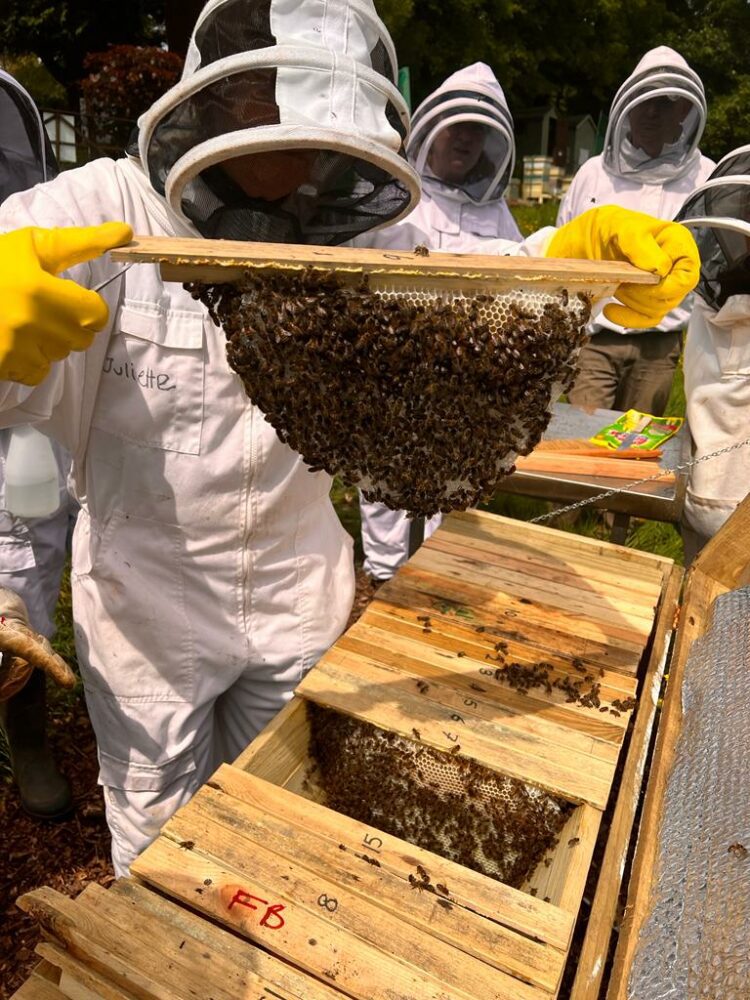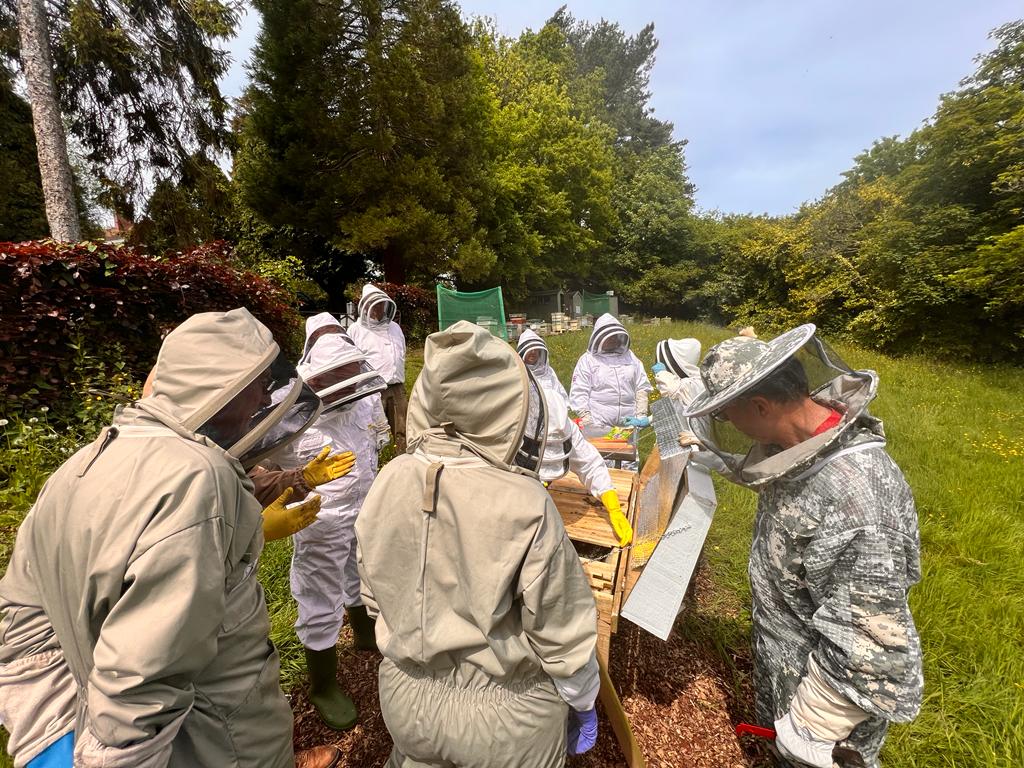Meet our passionate volunteer beekeeper Alan
Here in the lush gardens of Rowcroft Hospice, our wonderful volunteer beekeepers are the bees’ knees when it comes to looking after our apiary, home to over a million bees! The work of our devoted beekeepers has a big impact at Rowcroft, generating vital funds through the sale of the delicious honey, and our honeybees also pollinate the flowers in our beautiful wildflower meadow. Here Alan, one of our dedicated beekeepers, shares why he enjoys his role so much and why he’s eager to raise awareness about a new threat to our honeybees, the Asian hornet.
The role of Rowcroft’s beekeepers
“The Rowcroft apiary has existed since the 1970s and is maintained by our volunteers who donate their time to care for our bees and harvest the honey they produce. Our volunteers come along on Wednesday or Saturday mornings throughout the year. We begin extracting honey in the autumn. Once the honey is extracted, we package it into labelled jars, which are then sold in the Rowcroft shops. The proceeds go towards supporting the hospice, and we’ve been told that our honey sells very quickly!”

Passing on beekeeping knowledge
“Our volunteers possess a range of knowledge and skills, which they share during various educational events that we run. Local schoolchildren have visited the apiary to learn about beekeeping, and we’ve also organised activities with Rowcroft’s bereavement group, Spaces for Nature. We’ve found these activities to be valuable and a lot of fun. The group get a chance to talk and get to know one another, and we’ve even hosted a honey cream tea with the Spaces for Nature group!”
Raising awareness about Asian hornets
“Asian hornets have become a serious threat to honeybees and other pollinating insects. Since these predators have become endemic in France, we’re particularly vigilant at Rowcroft’s apiary. Asian hornets prey on honeybees at an alarming rate; a single hornet can kill and eat up to 30 to 50 bees per day. Moreover, a nest of hornets can grow to as large as 8000 hornets, so you can easily imagine the devastation they can quickly cause. In some countries, farmers have had to resort to pollinating trees with paintbrushes as the local population of honeybees had been devastated by these predators.
“We are hoping to spread some awareness around this threat to our honeybees. Asian Hornet Watch is a very useful free app that can help you to learn more about these predators and you can help to detect them by reporting any suspected sightings of an Asian hornet. Hopefully by keeping an eye out for these predators we’ll be able to quickly tackle the threat they pose to our honeybees.”
The importance of honeybees
“A large percentage of our crops and natural wildlife are pollinated by honeybees, so they are a vital part of our ecosystem. Just think about all the wonderful, tasty food we eat that bees help to pollinate!”
The bountiful benefits of beekeeping
“I find beekeeping therapeutic. We’re surrounded by wonderful nature at the hospice and it’s lovely to work amongst it. Working as a voluntary beekeeper is an interesting role; once you start learning about honeybees you find that there’s more and more to learn – I’ve found it to be quite addictive!”
Helping our honeybees!
If you’d like to help protect our pollinators from the threat of Asian hornets, you can download the Asian Hornet Watch app for free for Android via Google Play and for iOS via iTunes. If you’d like to find out more about this topic you can do so via the British Beekeepers Association’s website.

